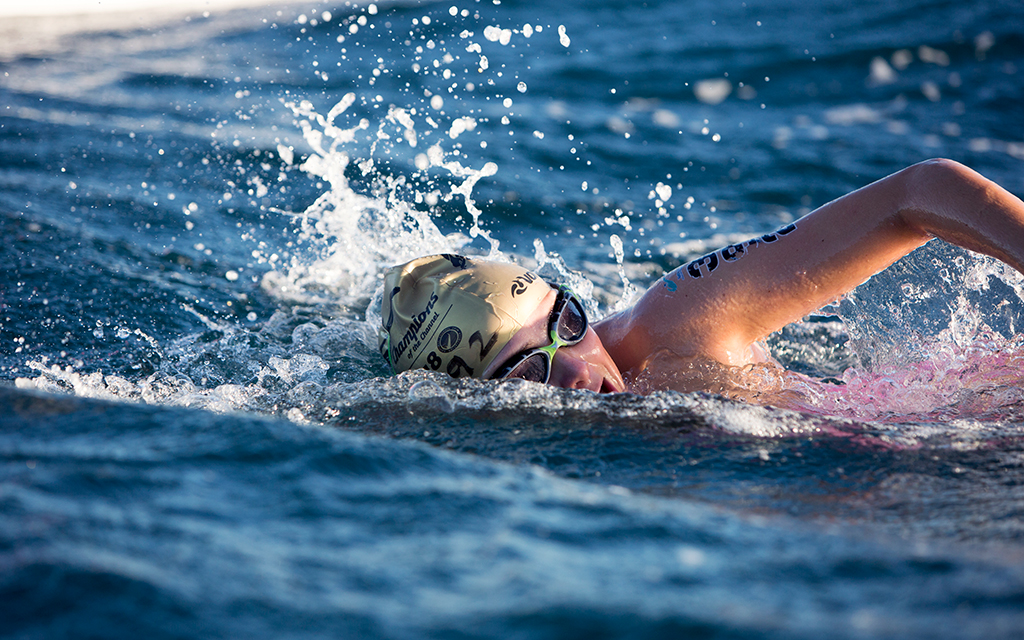„AT A TIME WHEN MAN APPEARS TO BE ALL-POWERFUL AND CLAIMS ALMOST EVERY SPOT ON EARTH FOR HIMSELF, NATURE FROM TIME TO TIME SHOWS US THAT WE’RE ONLY A SMALL PART OF THIS GREAT GLOBE. BE IT THROUGH INEXPLICABLE PHENOMENA OR NATURAL DISASTERS.“
In open water swimming, swimmers get this feedback from nature all the time. Unpredictable circumstances and the sheer force acting on the athlete. To me, that is a very exciting aspect that always grounds and challenges me. At the Rottnest Channel Swim off the coast of Australia, you have to deal with concentrated nature. Be it poisonous jellyfish, sea snakes, sharks or even the extremely dangerous currents. I can’t deny it, the race is definitely dangerous. At course kilometre 12, there was actually a major shark alert during the race. All athletes who were within a one-kilometre radius of the animal were brought to safety and thus had to abandon the race. I was fortunately already past the said spot at that time and only found out about it after the race. Very annoying for the swimmers who were affected, but of course the right decision by the organisers. Only a week before, a swimmer was seriously injured by a shark. But it is exactly these dangers, these imponderables, the adventures that make this sport so interesting for me!
The press writes: „Last weekend, the extreme swimmer from Marburg competed early in the morning in the challenging “Rottnest Channel Swim” on the Australian west coast. The competition is considered one of the biggest and most dangerous open water swims in the world. On the 20-kilometre course from Cottesloe Beach to Rottnest Island, the exceptional athlete from Hesse achieved an impressive time of 05:13:59 hours and was the fastest European to finish among the top 20 women.“
